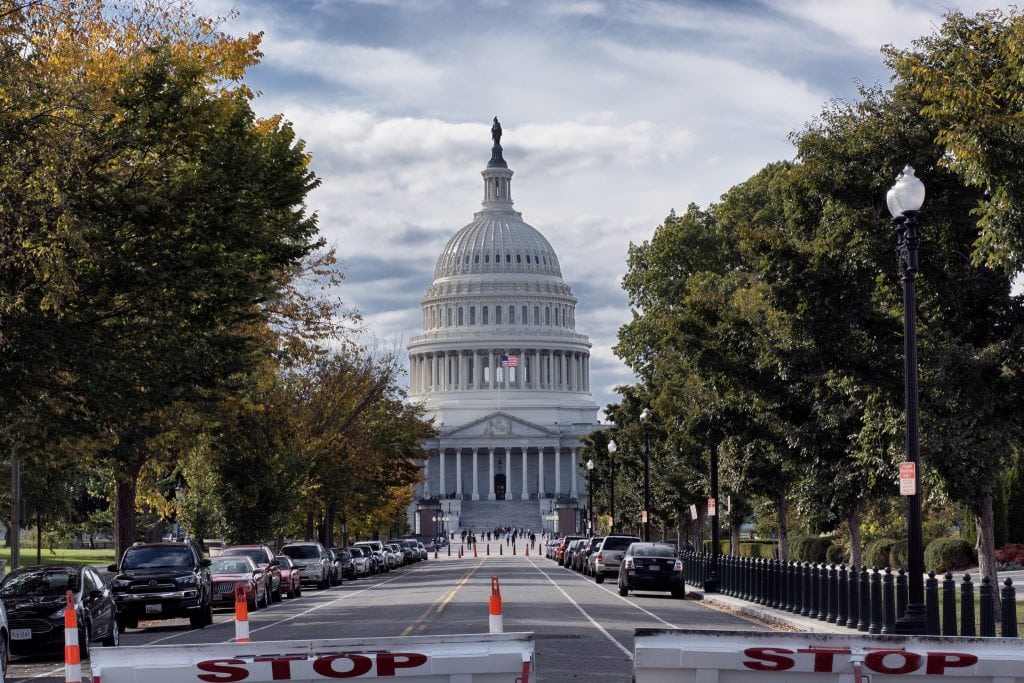Skift Take
This week in tourism, U.S. travel brands fight back against isolationism while Europe enjoys one of its best years for visitation. Read more about how President Trump affects tourism worldwide in our new magazine: The Megatrends Defining Travel in 2018.
Throughout the week we post dozens of original stories, connecting the dots across the travel industry, and every weekend we sum it all up. This weekend roundup examines tourism.
For all of our weekend roundups, go here.
>>Now is the best time for you and your coworkers to get tickets to attend Skift Forum Europe. Save now with group rates! Announcing Group Rates for Skift Forum Europe 2018
>>Europe’s 2017 tourism story is nearly the opposite of its 2016 downward twists and turns. It wasn’t a perfect year and some destinations on the continent are still struggling, but it’s also a sign that many Europeans are choosing to travel closer to home to stick to their budgets: European Tourism Had One of Its Best Years While U.S. Had One of Its Worst
>>This evolution of luxury will require brands to adapt products and experiences consistent with consumers’ new definitions of quality, comfort, and elegance: Luxury Is Evolving But Consistent Themes Connect Old and New
>>Will a traveler who only expects the finest ever decide to board a mass-market cruise ship? Well, the marketplace has spoken and it says, “Maybe, but only under certain conditions”: The Rise of Luxury Outposts on Mainstream Cruise Ships
>>If the travel industry’s lobbying and trade associations have any more tricks up their sleeves, they’ll need them if they will have any chance of reversing what is essentially the Trump Administration’s anti-visitor stance: U.S. Travel Coalition Enlists Restaurants and Retailers to Reverse Trump’s Isolationist Stance
>>From brands as experience platforms to strategic mergers, diversity messaging and beyond: These are the Megatrends in travel we’re watching closely in 2018: The Megatrends Defining Travel in 2018
>>A growing number of mainstream cruise lines think they can capture luxury travelers by offering them a premium product. The approach makes sense. After all, not every luxury cruiser wants the intimacy and exclusivity of a small ship: Merging Premium and Mainstream — New Luxury
>>Interior Secretary Zinke said last year that 30 percent of the park service’s employees were “disloyal to the flag.” Employees, as well as the national parks and monuments themselves, have become political pawns. The advisory board members who resigned were tired of serving as cover for an Interior Secretary who wouldn’t mind chopping down the forest: U.S. National Park Service in Crisis Mode as Most Advisory Board Members Quit
>>If we received a penny for every time a travel industry executive talked about how consumers are looking for “experiences,” we’d be billionaires by now. But in all seriousness, there’s a definitive strategy behind travel brands’ desires to play an even bigger role in travelers’ experiences: Travel Megatrends 2018: Travel Brands Want to Be Experience Platforms
>>Travel brands no longer get political at their own risk — they avoid politics at their own risk. With so much at stake in the Trump era, remaining on the sidelines about multicultural acceptance isn’t an option: Travel Megatrends 2018: Brands Embrace Diversity Message Amid Rising Neo-Nationalism
Get Skift Research
Skift Research products provide deep analysis, data, and expert research on the companies and trends that are shaping the future of travel.
Have a confidential tip for Skift? Get in touch
Tags: tourism, Travel Trends, trends roundups
Photo credit: Washington, D.C. near Capitol Hill. The U.S. Travel Association officially launched its Visit U.S. Coalition on January 16, 2018. Wayne Thume / Skift
